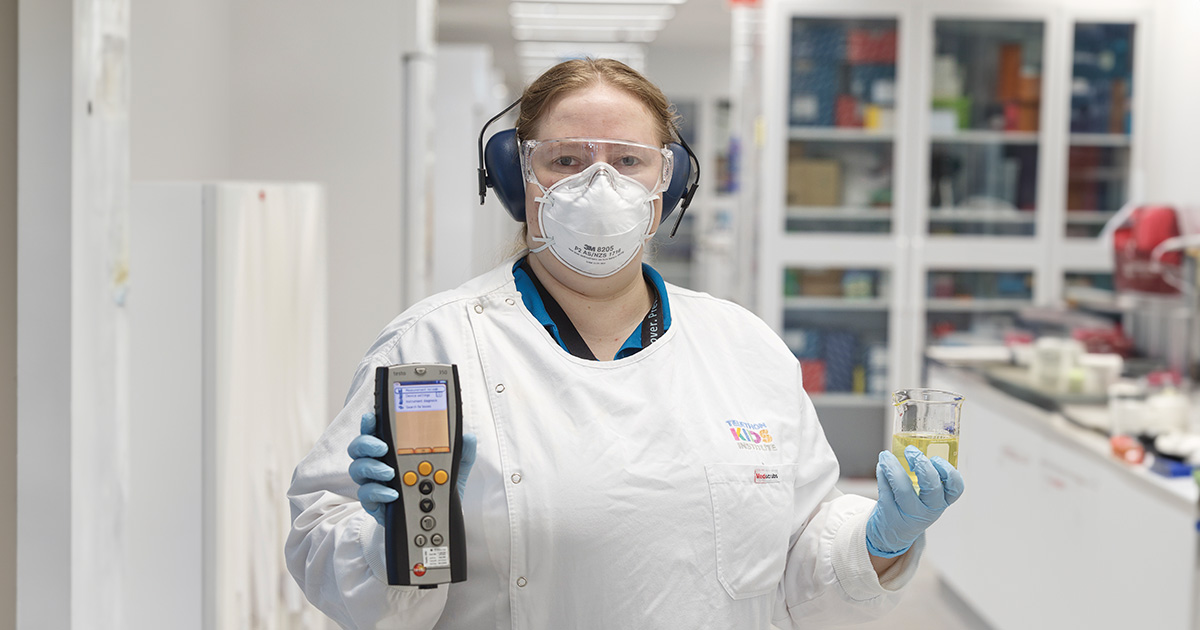Miners breathe more easily thanks to research
Researcher Katherine Landwehr’s world-leading exhaust toxicology research, being conducted at Curtin University and the Wal-yan Respiratory Research Centre – a powerhouse partnership between Telethon Kids Institute, Perth Children’s Hospital and the Perth Children’s Hospital Foundation – has already led to policy changes aimed at protecting the health and safety of Australian workers.
In 2019 she was part of a working group commissioned by the WA Department of Mines which found diesel exhaust concentrations in underground mining exceeded safe levels.
The group’s report – written by Dr Landwehr as part of her PhD thesis – led directly to the establishment of occupational diesel exhaust limits in mining in Western Australia in 2020, with similar limits introduced in New South Wales in 2021.
“Prior to this, Australia had no occupational limits for diesel exhaust exposure, despite it being an acknowledged carcinogen since 2012,” Dr Landwehr said.

Diesel-powered machinery is ubiquitous in the mining industry, so these changes have the potential to benefit nearly 200,000 workers every year in WA and NSW, by reducing the amount of diesel exhaust they’re exposed to daily.
Dr Katherine Landwehr

The Australian Council of Trade Unions wants to see regulators go even further, using Dr Landwehr’s research in a 2020 submission to Safe Work Australia calling for the establishment of national occupational diesel limits across all sectors.
Dr Landwehr has also presented her work to WA government departments and mining professionals, discussing which oil crops make the best biodiesel and outlining the devastating health effects that can follow occupational exposure to diesel exhaust – including cardiovascular disease and lung, bladder and brain cancers.
